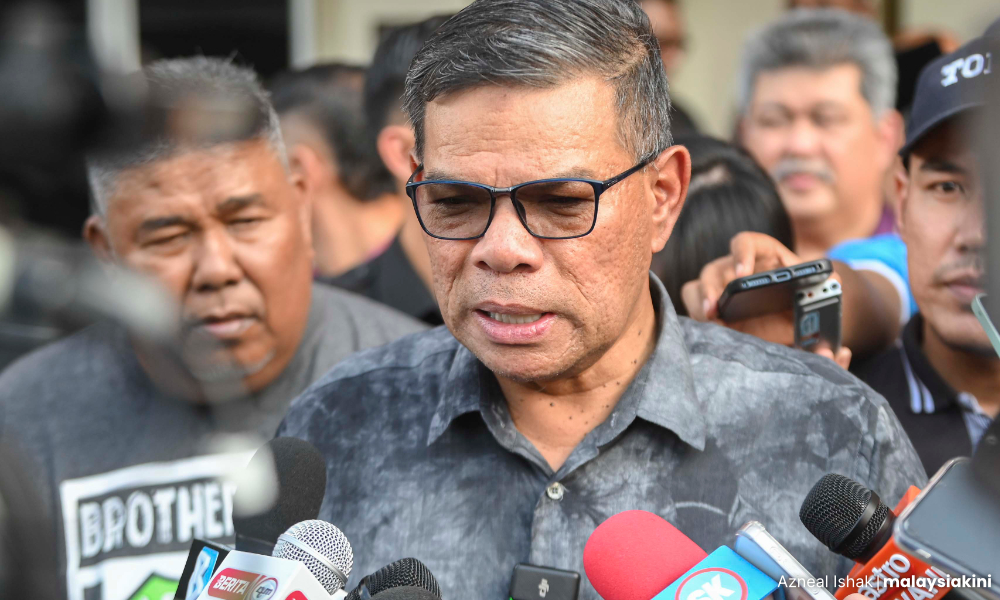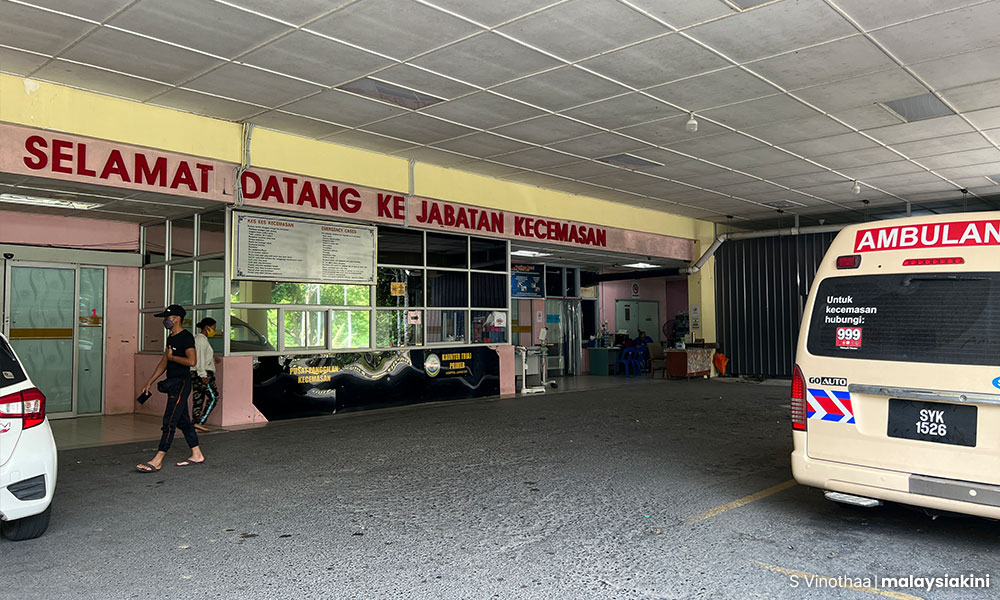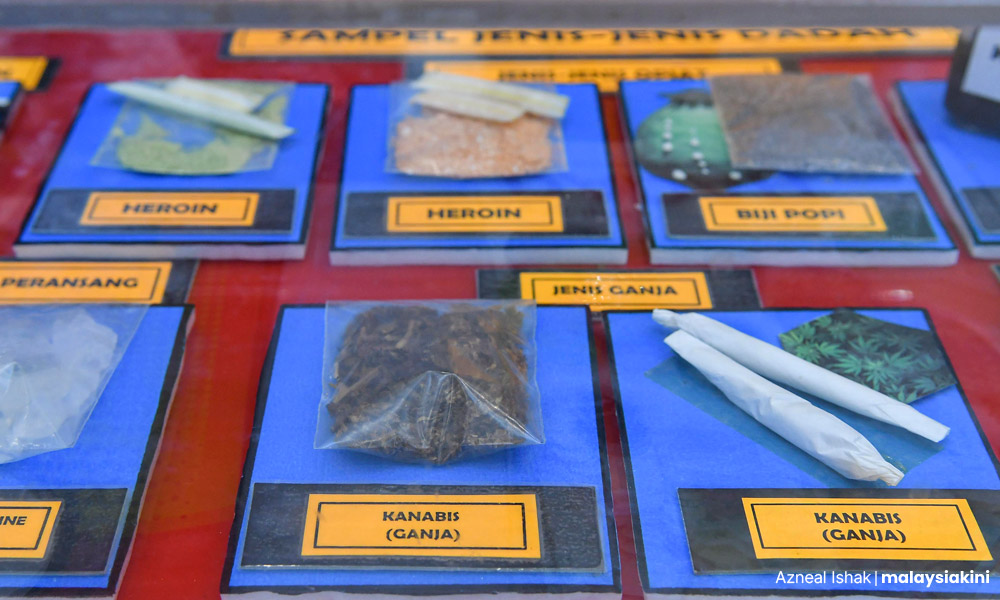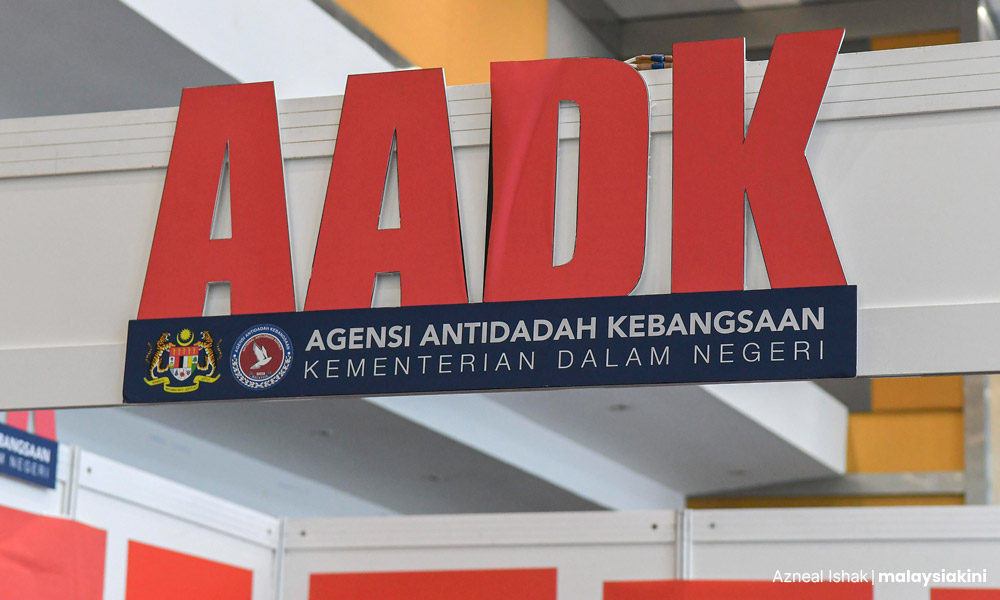Last October, we asked, “Is Malaysia ready to treat drug addiction effectively?”
Events of this past month show that we are not. We continue to bludgeon through legislative amendments and policies with limited consultation, inadvertently setting ourselves up for failure.
The elephant in the room
The Drug Dependents (Treatment and Rehabilitation) Act 1983 (Rehab Act) has been around for decades and yet we rarely hear about it when it comes to tackling drug use in Malaysia.
The Dangerous Drugs Act 1952 (DDA) dominates all aspects of drug policies in Malaysia from trafficking to use, and casts an immense shadow on the Rehab Act.
With all the fanfare promising a move towards harm reduction and treatment as a means to tackle drug use, public expectations were high that we would be moving away from DDA to a more effective Rehab Act under the recently passed amendments.
Home Minister Saifuddin Nasution Ismail also pledged that under the “reformed” Rehab Act, the criminalisation of people who use drugs under the DDA would only occur if they were arrested for other crimes (such as robbery).

This, however, leaves drug users who possess narcotics vulnerable to a possession charge under the DDA - which still stipulates a hefty fine or jail term.
This means that someone who may need treatment for using drugs could still be imprisoned based on the amount of drugs on him at the time of detection.
Without clarity on this front, what are the chances that compounding laws on the same group of people can be effective?
The first and last step of drug policy reform requires fully moving it away from the police and this ain’t it.
Do we have enough specialists?
Another issue that has been raised by various stakeholders including the Malaysian Medical Association is the need for medical specialists to have a role in diagnosis, rehabilitation, and managing treatment plans.
While that sounds like a good plan, how many addiction psychiatrists do we actually have in service? A dozen? Probably less.

In 2019, we recorded 141,080 drug offenders - arrests made under DDA, Poisons Act 1952 and the Rehab Act - and 129,604 in 2021.
If we are to assume that all these individuals require assessment by, say, 20 addiction psychiatrists under the Health Ministry, that would suggest a ratio of about one specialist to 6,480 patients (they are patients, aren’t they?).
This means a psychiatrist would have to assess about 17 patients per day and work out a long-term treatment and management plan for each of them.
With the ongoing manpower crisis within the Health Ministry, how do we ensure that each patient receives the fairest assessment of his or her treatment needs?
This warrants us to acknowledge and concede to the point that drug use has gone beyond the scale of what available medical practitioners are capable of addressing.
Not everyone who seeks medical advice can be assessed immediately by specialists, what more drug users?

This leaves us with the uncomfortable reality that potentially less-than-qualified persons would take charge of diagnosis and treatment plans.
The National Anti-Drug Agency (AADK) cited in their interview on Astro Awani that it has expanded its capacity over the decades of its operations and has trained staff and refined internal processes that enable them to take up this responsibility.
Considering the numbers of cases we are looking at, the proposed solution, while imperfect, is the more realistic option at hand.
The challenge moving forward is ensuring that the standards for treatment within AADK and (registered?) treatment providers can be maintained and supported through a robust and accountable professional council as proposed.
What are the alternatives?
In addition to expanding the capacity to tackle treatment and rehabilitation, there is an urgent need to rethink and review our categorisation of drug use and drug users.
The Rehab Act amendment has shone a bit of light towards this, albeit with a good degree of concern over how drug use is defined in law.
Not all drugs are the same and not all drug users behave the same either. Our longstanding practice is to (ironically) treat all drug users equally.

At present, a marijuana user who poses little or no harm to others is seen just as threatening as someone who consumes harder drugs, experiences psychosis, and is potentially violent to others.
There is very little attempt to draw distinctions based on how a person’s behaviour is altered by using drugs of varying addictive qualities.
The blanket response to all? Treatment, incarceration, or both.
The amendment does somewhat alleviate this with the introduction of a “misusers” category to be differentiated from “dependants”.
This could potentially include relatively minor drug use or recreational use, taking a significant load off our overwhelmed systems and institutions.
However, the definitions for these two categories should have been grounded in science and medicine and reflective of our needs as a society.
At present, the definition is broad enough that off-label use of medicines without a prescription is enough to get you caught as a “misuser”.
This would be great if we were trying to stop the misuse of livestock-grade ivermectin but it does little to nothing for the 129,604 “detected persons” we recorded in 2023.
What is needed is effective legislation that would give AADK and other relevant agencies the right power and responsibilities to address misuse holistically without violating fundamental rights.
Faulty bill or back to status quo?
One thing is clearer than ever, there is a greater acknowledgment by all parties that it takes more than the AADK to tackle drug dependency.

This problem is also keenly felt by MPs across the political divide, with many MPs sharing personal experience tackling drug dependence from their service centres.
These are problems that need a multistakeholder approach and interventions through effective laws.
It was highly disingenuous for the home minister to put the bill to two Parliamentary Select Committees for consultation and yet did not provide adequate time for recommendations to be considered in full before putting the bill to vote last Thursday (July 18).
For better or for worse, short of Dewan Negara rebelling against the bill and voting against it like it did for the repeal of the Anti-Fake News Act, we now have to live with the repercussions of having a problematic law governing drug use to upend the status quo - where nearly 70,000 drug use-related arrests were made under the DDA in 2022 alone.
The question now is how will the new amendments without the benefit of all the expert insights and recommendations provided resolve these challenges.
Will the DDA continue to dominate our drug policies or will there be an opportunity for this Rehab Act and the (misplaced) amendments to shine and open a pathway to further drug reform toward harm reduction and decriminalisation?
One can only hope. - Mkini
HAYAT is a human rights organisation that advocates for the right to life.
The views expressed here are those of the author/contributor and do not necessarily represent the views of MMKtT.

No comments:
Post a Comment
Note: Only a member of this blog may post a comment.